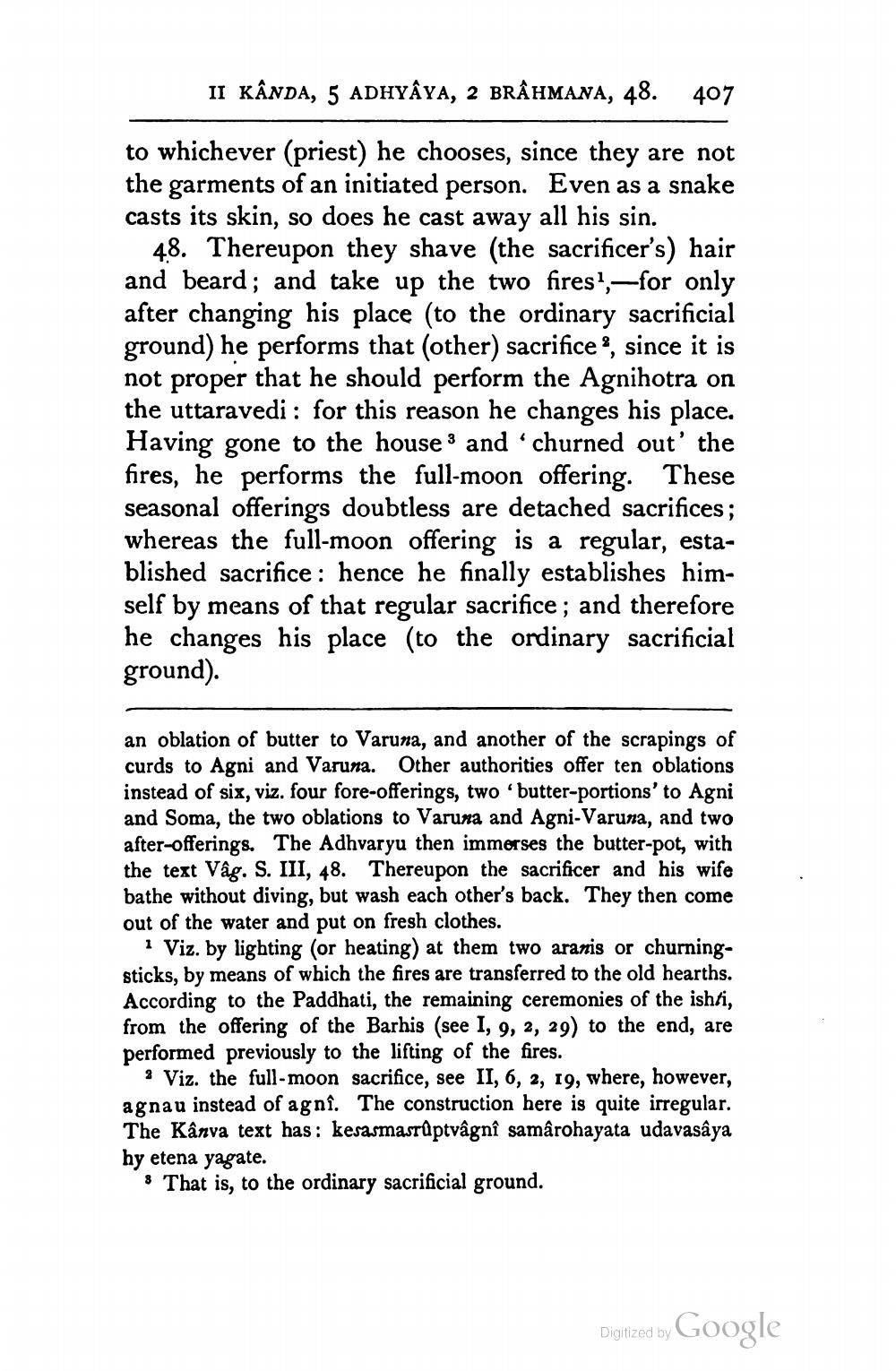________________
II KÂNDA, 5 ADHYÂYA, 2 BRÂHMANA, 48. 407
to whichever (priest) he chooses, since they are not the garments of an initiated person. Even as a snake casts its skin, so does he cast away all his sin.
48. Thereupon they shave (the sacrificer's) hair and beard; and take up the two fires?,—for only after changing his place (to the ordinary sacrificial ground) he performs that (other) sacrifice ?, since it is not proper that he should perform the Agnihotra on the uttaravedi : for this reason he changes his place. Having gone to the house 3 and churned out' the fires, he performs the full-moon offering. These seasonal offerings doubtless are detached sacrifices; whereas the full-moon offering is a regular, established sacrifice: hence he finally establishes himself by means of that regular sacrifice; and therefore he changes his place (to the ordinary sacrificial ground).
an oblation of butter to Varuna, and another of the scrapings of curds to Agni and Varuna. Other authorities offer ten oblations instead of six, viz. four fore-offerings, two 'butter-portions' to Agni and Soma, the two oblations to Varuna and Agni-Varuna, and two after-offerings. The Adhvaryu then immerses the butter-pot, with the text Vâg. S. III, 48. Thereupon the sacrificer and his wife bathe without diving, but wash each other's back. They then come out of the water and put on fresh clothes.
1 Viz. by lighting (or heating) at them two aranis or churningsticks, by means of which the fires are transferred to the old hearths. According to the Paddhati, the remaining ceremonies of the ishti, from the offering of the Barhis (see I, 9, 2, 29) to the end, are performed previously to the lifting of the fires.
Viz. the full-moon sacrifice, see II, 6, 2, 19, where, however, agnau instead of agni. The construction here is quite irregular. The Kânva text has: kesasmasruptvagnî samârohayata udavasaya hy etena yagate.
& That is, to the ordinary sacrificial ground.
Digitized by Google




